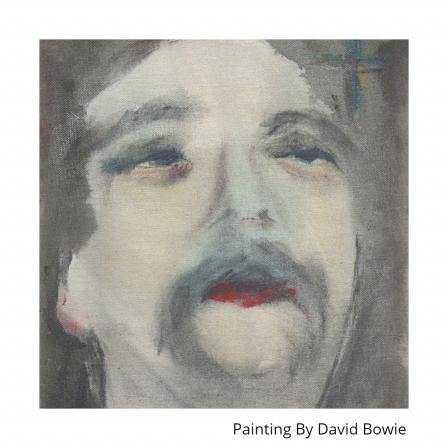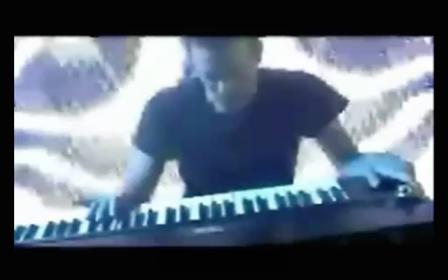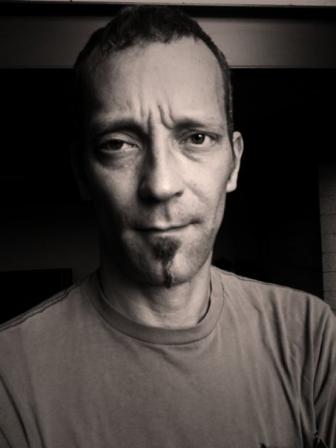Recently, Dan Volohov got the chance to speak with Charlie Clouser A member of Nine Inch Nails. And the composer of “Saw “franchise, “Natural Born Killers”, “American Horror Story” and a video-games, such as “Singularity” and “Evolve”.
In the interview for Punk Globe Magazine, Charlie talks about the different aspects of the writer’s work, about the very first years in Nine Inch Nails and his thoughts of band, about gigs and producer’s work. Hope you’ll enjoy!
Punk Globe: I’d like to start the interview with the question about Saw movie series. Can you tell us, how did you get to this project and what attracted you in this movie ? As far as I know, at the initial stages of work the budget wasn’t very big.
Charlie: The director and creator of the SAW franchise, James Wan, was a big fan of dark and industrial music, and he wanted the score to have as much of those influences as possible. Since I had experience with scoring from my years working with a film composer before Nine Inch Nails, it was not a stretch to bring someone like me to the films. And you’re right - the first SAW film was done for very little money compared to other films in that genre, and I did the score to that first film in very little time and for very little money, but as the franchise became successful we got better schedules and budgets.
Punk Globe: Writing the music you’re working on different things and emotions what you want to convey to your listeners. But what helps you to identify these emotions Or as the writer are you getting into all the characters and details of the movie?
Charlie: The decisions about what to accent in the score usually comes from long conversations with the director. Often there will be moments when they will specifically instruct me not to let the music reveal something to early, or sometimes it’s the opposite, where we do want the music to create the effect of foreshadowing what is about to happen. Since most of those decisions have been thought about for a long time as they work on the script and edit the picture, it’s usually easy for the director to explain how to approach those questions. Another thing that makes my process easier is that there’s usually temporary music that’s been put against the picture by the director and editor. Even though this music won’t be used in the final film, and is often not quite right, at least that gives me a rough idea of what might (or might not) work when I’m writing the score. This also gives us a set of examples to talk about, so we can say things like, “Do you hear how this piece of music starts slow, and then the drums come in when the character pulls out the gun? I think something like that could work.” So this makes the process easier at the start.
Punk Globe: You started your composer career working on “Natural Born Killers” with Trent. Concerning the picture itself, the plot and the characters are quite specific. How difficult was it for you to work on that project ?
Charlie: For “Natural Born Killers”, the entire soundtrack was made of music from records and pieces of scores from other films, all put together by an excellent music supervisor named Bud Carr, who has had a long career finding the right pieces of pre-existing music to fit against all sorts of films. So what I did with Trent on that project was to just create an album by editing and combining pieces of dialog from the film alongside our favorite pieces of the music that Bud had inserted into the film. Trent did write the song “Burn” specifically for the film, and we recorded that as well as a stripped-down version of “Something I Can Never Have”, and these were used in both the film and the soundtrack album. But our work on that project was not really in the same world as composing a score, since most of the music existed before the film was completed, and most of what we did was just assembling an interesting album that had the same timeline and flow as the film.
Punk Globe: Most of the projects that you work on are detectives or horror movies. So that means that you, as a composer, that you like to create a kind of tension ?
Charlie: My favorite films, and my favorite styles of music, always have some element of uneasiness, discomfort, tension, and a sense of rushing forward to a conclusion that may be uncertain. This kind of comes naturally to me, and I’m not very good at creating music that feels like a comfortable, calm place! I’ve always been interested in hearing new sounds, strange instruments, and unsettling tones, so it’s never a struggle for me to find the right kind of approach for those kind of films. With horror movies this means I can use lots of atonal and dissonant sounds like string sections playing clustered chords and weird effects, and with some of the television detective stuff I’ve done this means I can use lots of hypnotic pulses and subtle, muted tones that feel like the gears turning inside your mind as you try to work out the plot. These projects fit perfectly with my natural inclination to work with these kinds of sounds and musical moods, and I feel lucky to have found a way to work in both of these styles because they feel so natural to me when I’m in the studio.
Punk Globe: You started recording with Nine Inch Nails on “Happiness Is Slavery”, after which you took part in recording of legendary “The Downward Spiral”. Recently I looked through album’s credits. You are mentioned there as responsible “programming, continuity”. While the first one is clear, what can you say about the second one? What was your role?

Charlie: By the time I started to work with Trent on “The Downward Spiral” the album was nearly completed. The songs had all been written and mostly recorded, and all that was left to do was to add just a few last-minute sounds to a few songs before they were mixed, and then to decide on the order of the songs and assemble them all into a coherent running order that felt like it had the right peaks and valleys in the right places. So I was able to help with these tasks, adding just a few sounds here and there, and then handling the technical side of assembling the album so that Trent could sit back and listen without worrying himself about the technical aspects of assembling the album.
Punk Globe: The Downward Spiral is often called one of the most “gloomy” records – partly because of the content and inner concept. Partly because of the place where it was recorded. Do you agree with this ?
Charlie: Even though the album was recorded in the same house that Charles Manson and his accomplices committed those horrific crimes, the house itself was actually quite a nice, pleasant, almost idyllic setting. It was a nice ranch-style house on a very large lot, with big trees, a spacious guest house, and a calm swimming pool, and the whole setting was tucked away at the top of a canyon in a very quiet spot with amazing views looking down over Los Angeles. So when you were actually there it was quite pleasant - as long as you could forget what had happened there so many years before. When I first went to the house I didn’t know that these crimes had happened there until someone showed me the pictures in the book “Helter Skelter”, which was written by the prosecutor in that case and had photos of the house which we were sitting in. It was certainly a surprise and probably adds to the sense of mystique around the house and the records we made there, and having the memory of that in the back of your mind as you work definitely reinforced the darkness and sense of helplessness and hopelessness that people hear in the album.
Punk Globe: After you left the band, you’ve started your producer’s career working with Helmet – you produced band’s first album after their reunion “Size Matters”. So can the producer work experience be compared with your composers work? What is the same and what differs ?
Charlie: I always loved the band Helmet, and the raw power and thrust of many of their songs. They had toured with Nine Inch Nails a few times and that is how Page Hamilton and I became friends and started to write some songs together. Even though many of their songs sound simple at first, the chord voicing and internal harmonic stuff that Page gets from his background in complex jazz theory makes their stuff different and more satisfying to many other bands in their genre, and this was what attracted me to the band. Page and I became friends and wrote many rough demos at the NIN studios in New Orleans, so when I left NIN and returned to Los Angeles it was perfect timing because that was right when Page wanted to begin work on the next Helmet album. I was really glad to be able to participate in that project and add just a little bit of my methods of programming and flavoring the sounds without really taking their sound in too different of a direction. That process is very different from the work I do for films - it’s a process of collaboration and trying to find and highlight the best aspects of what the artist does without changing it too much. I think of it sort of like when you are making a sauce on the stove, and you want to let it simmer until you boil off all the excess, and what’s left is thick and tasty - but the ingredients came from someone else’s recipe and all you can do is add some seasoning and keep stirring the sauce. When I’m composing for film it’s much more like making a solo album where there are not so many cooks in the kitchen, so there’s nobody else to blame when you can’t get the sound you’re thinking of!
Punk Globe: The Fragle was pretty much influenced by Bowie's and Eno’s stuff. What do you think, does this factor became the main as it differed from Spiral or at the very beginning of your work you wanted to make something completely different?
Charlie: If it had been left up to me and Danny Lohner to decide, we probably would have recommended that Trent just do “The Downward Spiral Part Two”, and it’s a good example of Trent’s genius that he wanted to go in a different direction for “The Fragile”. He very consciously did not want to just repeat what had worked in the past, and wanted to take a risk and try to work in styles that we were not experts at doing. We all were huge fans of Bowie, Eno, Roxy Music, and more ambient and arty records like that, but had not had as much opportunity to approach music like that within the context of Nine Inch Nails, so even though it was a challenge to find a way to approach a NIN record that way it was very much a conscious decision, a mission that Trent wanted to go on. We experimented with a wide variety of approaches and styles as we began the project, and had over one hundred rough sketches that we could pick from to create completed songs. For instance, the song “Starfuckers, Inc.” grew out of a musical sketch that I did which was influenced by Atari Teenage Riot, who had toured with us in the past and whose records, performances, and attitude I’ve always been a fan of. I created a rhythm track using a drum machine run through distortion pedals and guitar amps, and then Trent took that rhythm track and turned it into a complete song. Other songs, like “Even Deeper”, were influenced by artists like Photek and Portishead, so there were so many different approaches and influences that all came together under Trent’s guidance and overall theory of how he wanted the album to sound. At times it was confusing to the rest of us who could not see the bigger picture, but Trent always knows where he’s going and what he wants to achieve, and as the album came together it became clear that his idea was the right way to go. At first the album may have confused some of the hardcore fans who were expecting even more aggressive stuff like the previous albums, but as the years have gone by many of those same fans have come to love that album as one of their favorites in the NIN catalog.

Punk Globe: In one of your interviews you said that being a member of Nine Inch Nails “spent endless amounts of time searching for sounds never heard before”. But what inspired this search? You had some common impulse or it was one of the challenges for realization ?
Charlie: That search for sounds that nobody’s heard before is a big part of what I love to do in the studio, and I think that’s the main reason why Trent wanted me to become a part of NIN. I think many musicians and producers work this way, whether it’s a guitar riff or a drum part or whatever - you hear just a fragment of something you like in a song and you wish the whole song was like that instead of just that one little piece. So you experiment and try to find a way to make a whole song like that, and along the way you get sidetracked and wind up in a totally different destination than you would have thought. For me that might be hearing one kick drum sound in a song by Ministry, or one half of a guitar riff in a song by Killing Joke, and you want to create something that unites those two fragments into a whole new sonic landscape. Along the way while you are trying to get to that destination you accidentally go down another path, and the results can surprise and excite you enough to build a whole new song around them. I get inspired by all sorts of unusual sounds - one of my favorites that I still use to this day on many of my scores was a recording I made when I first moved to NYC. I had a little cassette recorder and I was in the subway station at 72nd street and the squealing of the subway car’s brakes, echoing in the cavernous subway tunnel, created a howling, screeching effect that sounded to me almost like a flute or a high string section. So I recorded these sounds on this crappy cassette recorder and then loaded them into my sampler where I could play them from the keyboard. I still use these sounds on many of my scores because of the ethereal, haunting effect they create.
Punk Globe: The band had quite a specific reputation. From one hand – you behaved quite ambiguously on stage. From the other hand – you could masterfully and spiritually perform such compositions like “Hurt” and “Closer”. It turns out, it's all in contradiction ?
Charlie: I think all of those different flavors and emotions of the NIN sound and performances are all just parts of the same whole picture, like the six faces of the dice in a casino. From where we sit, it’s all one solid shape, but the audience only sees one side at a time - whichever side is facing up when they roll the dice. It never felt like a contradiction for us to go from the aggression of “Happiness In Slavery” to the quiet calm of “Hurt”, and it always felt natural to play these songs in the same concert. They’re all just different sides of the same coin.
Punk Globe: Preparing for the interview I found information that before the Fragility tour you invited a hundred of your fans to look at your final rehearsal. It’s quite interesting and unusual practice. Especially taking into account the size of your shows and tours at that time. But talking about this “show” – can you tell that it was the most unusual thing you ever did ?
Charlie: Inviting a hundred fans to see our rehearsals was, one the one hand a way to reward the most dedicated fans and give them a special opportunity, and on the other hand it was a way for us to see their reactions to some of the new things we were experimenting with while there was still time to change things before the tour had started. Like, if it looked like they were getting bored during the quiet section in the middle of the set, maybe we would make that section shorter. Or if some songs felt too slow, or too long, then maybe we would have time to change them before it was too late. In the end I don’t think we actually changed much based on their reaction, but it was also a way to test out all of the video projections and other production elements that were new to us on that tour. As it turned out, the long, quiet section in the middle of the set list was accompanied by very striking video elements created by Bill Viola, so even though the music was slow and dreamy in that section, the hypnotic aspect of these three huge video screens drew the attention of the audience and that whole section of the set list did not feel like it was too slow or too long - so we left it exactly as Trent had planned it. There were a few songs that felt out of place, like “Where Is Everybody”, and we wound up only playing those songs on a few shows before we replaced them with more energetic pieces. But it was also nice for us to have an intermediate step between our private rehearsals and the first big concert, so having those fans at our last few rehearsals was a nice way to make that transition for us.
Punk Globe would like to thank Dan Volohov and Charlie Clouser for the very informative interview.



